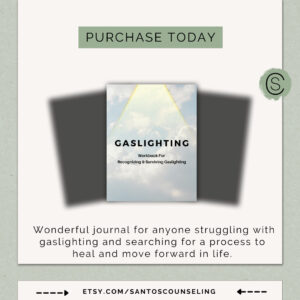What is gaslighting?
The term gaslighting extends beyond a dictionary term. It is in essence a lived experience that can completely turn a person’s life upside down.
When people discuss gaslighting, they often point to the term alternate reality. Meaning that you are in a relationship with someone that utilizes behaviors and words aimed to push you to question your very reality.
The person that engages in gaslighting takes on a role that is considered toxic and displayed through actions of abuse and manipulation. Unlike what most people think, gaslighting can take place in all types of relationships. Gaslighting can exist in intimate relationships between partners, at work, and even in a family system.
The strategies in gaslighting are often called tactics aimed to push a person to question their reality. The tactics are seen in behaviors such as:
- Dishonesty.
- Manipulating events.
- Habitual lying.
- Blaming.
- Asking for proof when being called out.
Why Does Gaslighting Take Place
Gaslighting takes place for ample reasons. Below are 4 common reasons gaslighting takes place.
1. Individuality
One key reason is connected to the individuality of the person who is engaging in gaslighting and the second is connected to the behaviors found in gaslighting.
Individuality has to do with the person who engages in gaslighting having a challenging history that points to the behaviors of gaslighting. It is not a reason to blame. Instead, it simply sheds light on dots that can be connected. Such as a person with a history or trauma in which they experienced behaviors of narcissism or even gaslighting during their childhood.
2. To exert power
This can take place in a situation where the person engaging in gaslighting uses power to feel better or to control a specific situation.
3. To exert control
Control takes place in gaslighting due to the feeling that control gives the person engaging in gaslighting.
This can feel like a mixture of being needed, respected, in control, and powerful. If you think about the case of Jeff, he shared that he would have to be the best to get the attention of his mother.
Typically, as kids, we yearn for unconditional love and attention from our parents. In a relationship, it may be seen as pushing your partner to stop seeing their friends so that you could feel in control and needed.
4. To seclude you from others
Often within gaslighting seclusion takes place. As a victim, you may feel that your partner is encouraging you to stop spending time with friends or to feel bad when you spend time with friends or family.
Over time, you notice that you are living a very solitary life with your partner. In some ways, you think this is healthy because it makes you feel that the relationship is strong.
In other ways, you notice that your support system starts and ends with your partner.
What Gaslighting Feels Like?
When you are a victim of gaslighting, there simply isn’t one word to highlight the feeling. In the years that I have supported individuals to heal and recover from the tight grip of gaslighting.
I have found the following key areas connected to the lived experience.
As you read over each, take time to reflect on your current state. Ask yourself, do I feel “X”. The “X” is the key point described below.
The goal is to ensure that you are in a healthy relationship.
- You feel powerless.
- You feel like you are being overly sensitive.
- You feel insecure in your thoughts and begin to distrust your decisions.
- You feel vulnerable.
- You feel discredited.
- You second guess yourself.
- You feel like something bad is going to happen.
- You feel inadequate.
- You question the validity of your memories.
- You doubt your viewpoint or perception of what took place.
- You feel alone.
- You feel dazed or lost when communicating.
- You feel tired and drained.
- You notice a decline in mental health.
- You feel like your thoughts do not matter.
- You feel like your feelings are not valid.
- You notice a decline in physical health.
- You disconnect from your support system.
- You feel stupid.
A supportive read that can aid in the process of healing is comprehending green versus red flags in relationships. Click here to read about it.
Building relationships with green flags are a wonderful way to ensure that you are not in spaces that hold behaviors connected to gaslighting.
- Respectful of boundaries.
- Respect individuality.
- Supports you in life.
- Able to experience growth.
- Able to experience laughter.
- Validates you.
- Commitment to meet each other’s emotional needs.
- Sees and acknowledges you.
- Willing to work on the relationship.
Green Flag: Validate Your Feelings
You find yourself in a healthy relationship when someone validates how you feel. For instance, let’s say you have a rough day at work, and you call your partner. You tell them you have a bad day, and your partner says, “I’m sorry you went through that; how are you doing?” They are validating your feelings and giving you space to share. This validation is a massive green flag for your relationships.





